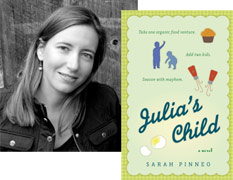In the earliest press releases, everyone was careful to say that Harlequin would operate as an independent entity inside of HarperCollins. But that's management's line in the playbook. They have to say that. Because when you fork over a half a billion dollars cash for a company, it's crucial to retain the top talent until you figure out just what you want to achieve from the merger. News Corp can't really say "hells to the yes, there will be big changes!" Because Harlequin employees would have their resumes copyedited faster than you can sing the chorus of "These Boots Are Made for Walking."
But even knowing that, there's still no reason to panic. Corporate mergers are slow. Really slow. The Penguin / Random House merger was announced in the fall of 2012. It was officially completed (on paper, anyway) nine months later. And now, nearly a year after that, I'm still getting separate royalty statements from the two.
Don't forget that Harlequin acquired Silhouette in 1984. And if you're squinting at the many similar "lines" of romance titles at Harlequin, you can still see vestiges of overlap between the two companies, thirty years later.
So what should an author do? In the first place, take a deep breath. Don't call your editor in a panic. She's probably having a really stressful day. Questions will not be answered quickly. But that doesn't mean that nobody cares about you. Even if you're sitting on an unsigned contract, or an offer of publication that hasn't gone to contract, odds are that your situation will be completely unaffected.
It's too early to say how this latest merger (or the next one, or the one after that) will change the marketplace. As with so many other questions in publishing, the question of "what should the author do?" has a familiar answer. Head down. Write the next book. And make it a winner.

Sarah Pinneo is a novelist, food writer and book publicity specialist. Her most recent book is Julia’s Child. Follow her on twitter at @SarahPinneo.
1 comment:
I've recently been in this situation as the independent publishers, Constable and Robinson, who wanted to publish my books were bought out by Little, Brown a few weeks later, and in the process my editor was made redundant. Lots of subsequent changes meant that six months later, and after much negotiating by my wonderful agent, I've only just got my contract through, but it was touch and go for a while! Scary stuff.
Post a Comment